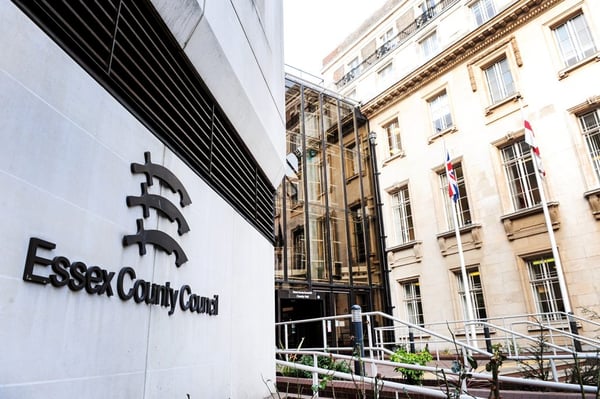How Kent is providing digital solutions to the cost of living crisis
Kent County Council (KCC) has seen major success from the rollout of Kent Money Advice Hub - a pilot digital advice service for residents struggling with debt and the cost of living.
Since its launch in 2022, it has helped 576 residents achieve a total of £835,000 in funding by directing them to benefits and money saving schemes. It has recently been nominated for two Institute of Revenues, Rating and Valuation awards.
The project is a collaboration with Citizens Advice who provide one-to-one help to anyone using the Hub. Guidance can be accessed through calls, video chat and WhatsApp messages. Most innovatively, residents can attend a kiosk - based at a community sites across Kent - to use a tablet to get advice.
Government Transformation Magazine spoke to Lucy Alesbrook, Financial Hardship Programme Manager at KCC, about her learnings from the project and future plans for the scheme.
A web of support mechanisms
Alesbrook highlighted how the project lies within “a web of other support mechanisms." The programme is run in partnership with the Money and Mental Health (MMH) scheme, offered by Citizens Advice, in recognition that people seeking financial help are likely to be struggling mentally too.
Alesbrook stressed the importance of council schemes being interconnected in order to effectively transform government. Interweaving services and providing strong referral systems between schemes “takes the emphasis off those who are struggling to find the right person to speak to," she noted.
to effectively transform government. Interweaving services and providing strong referral systems between schemes “takes the emphasis off those who are struggling to find the right person to speak to," she noted.
On working with other support providers like Citizens Advice, Alesbrook said: "We've found it really positive.” She acknowledged that there is a need for large local authorities, like KCC, to recognise when to outsource their expertise in order to provide residents with the best services, saying “we can’t deliver our work without partnership and collaboration.”
The project has also drawn upon the knowledge of local organisations, including district and borough councils, as well as organisations that people in debt might seek out and trust, including foodbanks. Alesbrook advised that overcoming local government bureaucracy to build these connections was vital: “If you don’t engage with the organisations on the ground it's hard to understand what the picture looks like for people in need.”
Sustainable solutions
Alesbrook emphasised that while ‘sticking plaster’ methods of dealing with the cost of living crisis, like lump sum payments, can be a crucial short-term solution, keeping people out of debt requires a longer term strategy: "sustainable forms of support are really critical," she said. This includes reducing the stigma associated with being in debt, and encouraging more people to come forward.
The advice kiosks have been particularly impactful; enabling residents experiencing digital exclusion to tap into the service. The kiosks, scattered in community sites throughout Kent, include a tablet with a simple user interface. There are also staff on-site to lend assistance if needed.
Evaluation led improvement
The future of the Kent Money Advice Hub looks bright with plans to make the pilot a permanent project. Alesbrook said getting feedback from focus groups and surveys is a priority at this stage as the team consider how to move forward on their development areas.
These include: collaborating with organisations to provide more kiosks as a “digital gateway into services”; expanding the network of kiosk locations; connecting with more schemes that support people through the cost of living crisis; building momentum for partners to support the service at a local level; and continuing to improve project delivery in response to the feedback they are currently gathering.

By Lucy Baldwin
Lucy is the junior reporter at Government Transformation Magazine. She is currently a student at Durham University and Head of News at the university TV station, PalTV.Also Read
- NHS unveils redesigned homepage to meet evolving digital health needs
- Transforming citizen experience: Innovation, strategy and collaboration in public services
- Reforming planning technology: the key to unlocking growth
- Canada sets out 'Digital Ambition' with focus on smarter, secure, and citizen-centric services





